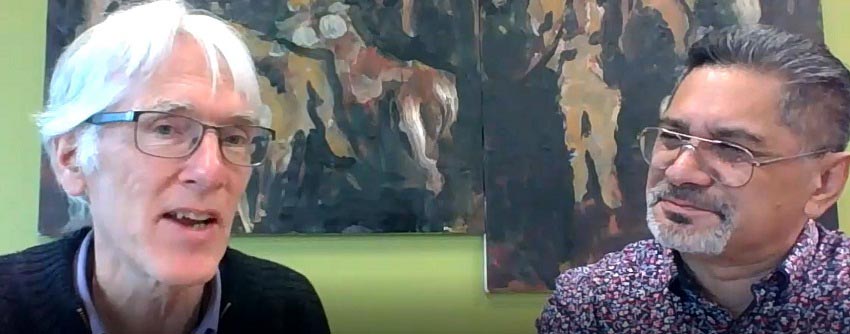Publish Date:
18 May 2022Keywords:
Aotearoa must take the opportunity to make inroads into ending homelessness and enshrine the right to a decent home in a post COVID-19 world.
These were key messages to come from the annual Housing First Auckland Collective hui which kicked off on 25 November 2020 with a keynote address from the Human Rights Commissioner, Paul Hunt.

Chief Human Rights Commissioner Paul Hunt with Tumu Whakarae Māori – Head of Māori Development at VisionWest, Fred Astle
Housing First Auckland programme lead, Tracey Moore says, “COVID-19 has demonstrated our ability to work together across sectors to solve complex problems in an agile way. It’s now time to turn this response to the pandemic into long-term change”.
This year Housing First Auckland, in partnership with the government, has sheltered around 1,000 people in motels during lockdown periods, and provided access to support services. Since then, the Collective has continued supporting 536 people in motels as of 30 September 2020.
“It’s vitally important that we all – housing providers and government – build on this work to avoid seeing another wave of homelessness,” Ms Moore says.
“The struggle to keep, or gain, a home puts many Kiwis under enormous pressure at the best of times. As house prices continue to skyrocket, and with the $107.6 million set aside for motels during the pandemic due to end in March/April 2021, the next few months will be critical.
“Housing First Auckland is very much seeking to be part of the national solution and to work with government to reach our mutual goal that homelessness is rare, brief and non-recurring.”
Guest speaker, Chief Human Rights Commissioner, Paul Hunt also told the hui that housing is a human right and the government is obligated to create the conditions permitting a warm, dry, safe and accessible home for all New Zealanders.
“The government has a responsibility to ensure everyone is able to enjoy the right to a decent home. However, successive governments have not delivered on this fundamental human right for many years. Families have suffered serious, avoidable hardship as a result.”
Mr Hunt says human rights and Te Tiriti o Waitangi can help the government effectively address Aotearoa’s housing crisis.
He says one of the issues successive governments face is limited awareness in what the right to a decent home means within Aotearoa’s unique national context.
To address this the Human Rights Commission have recently launched draft Guidelines on the human right to a decent home in Aotearoa.
“Our new Guidelines are a living-framework for understanding what the right to a decent home means in our unique national context. We want them to be useful for individuals, communities, hapū, iwi, housing policy makers and practitioners, to ensure the right to a decent home is delivered.”